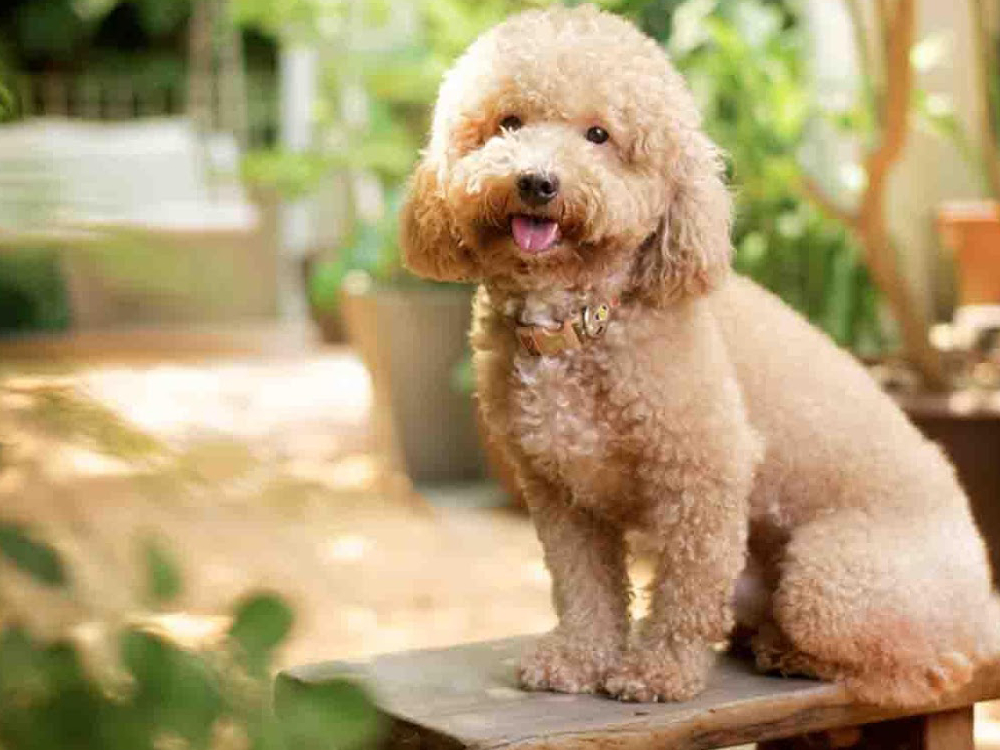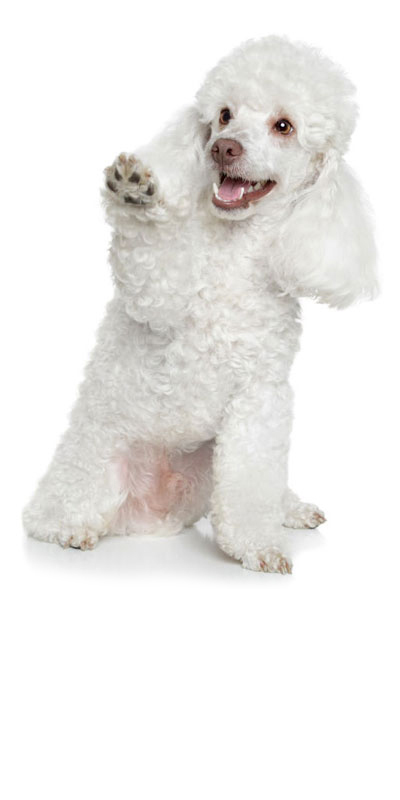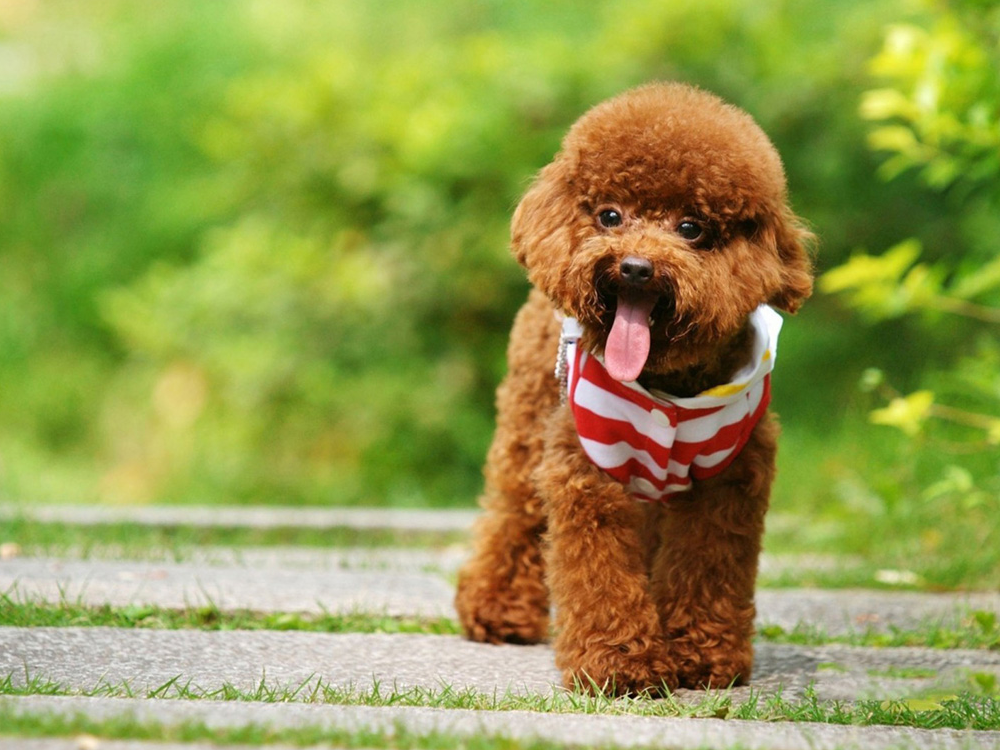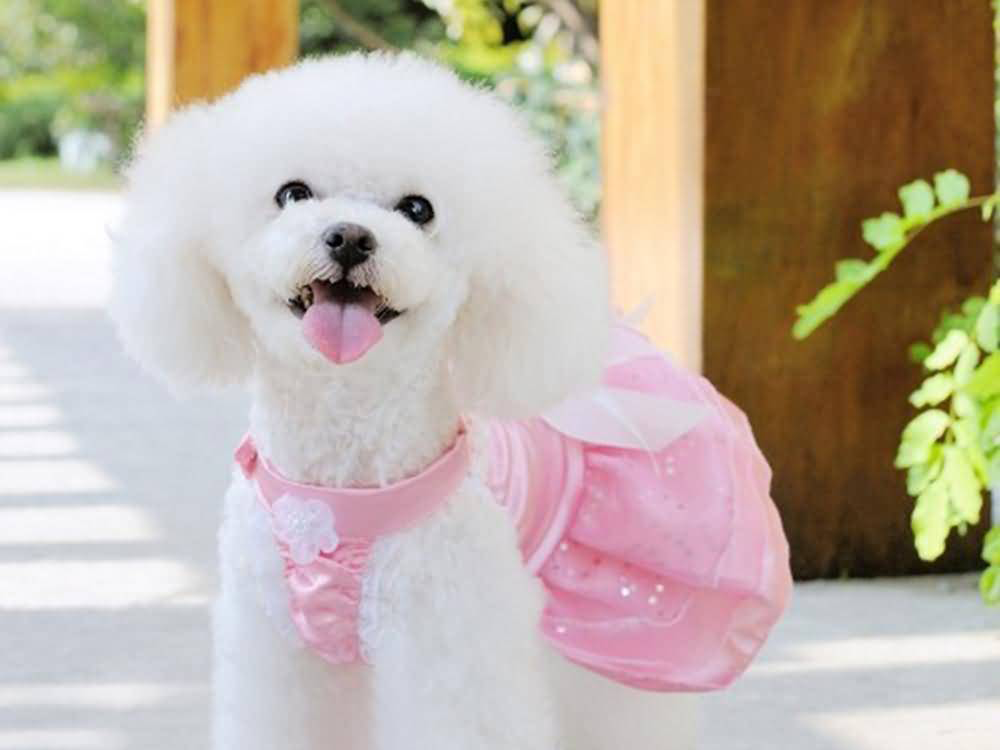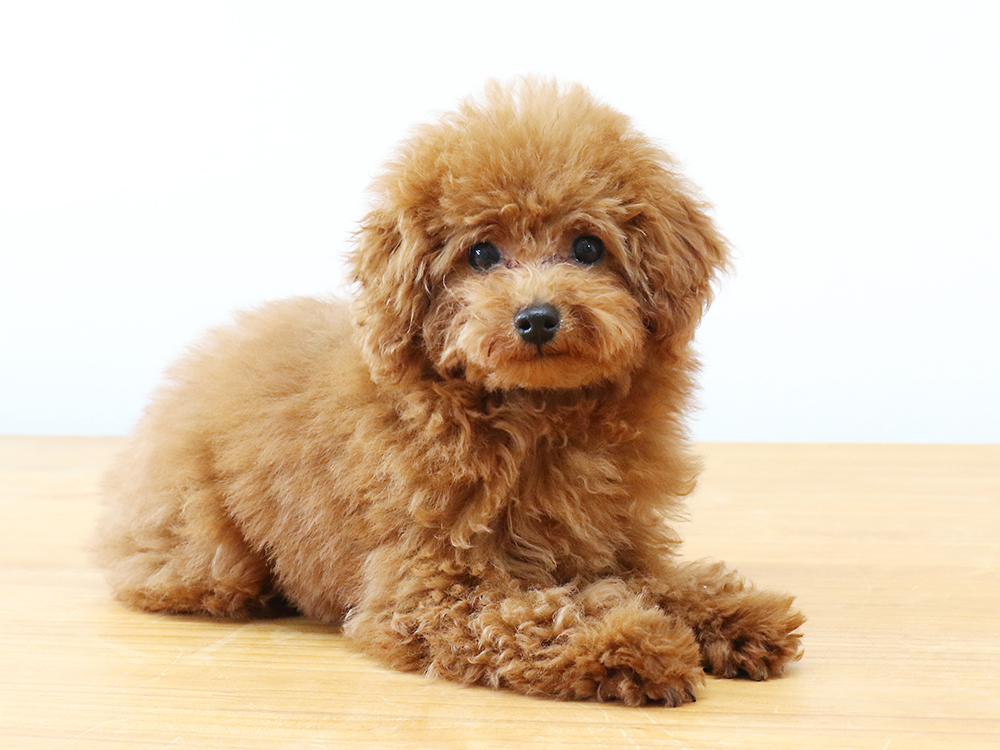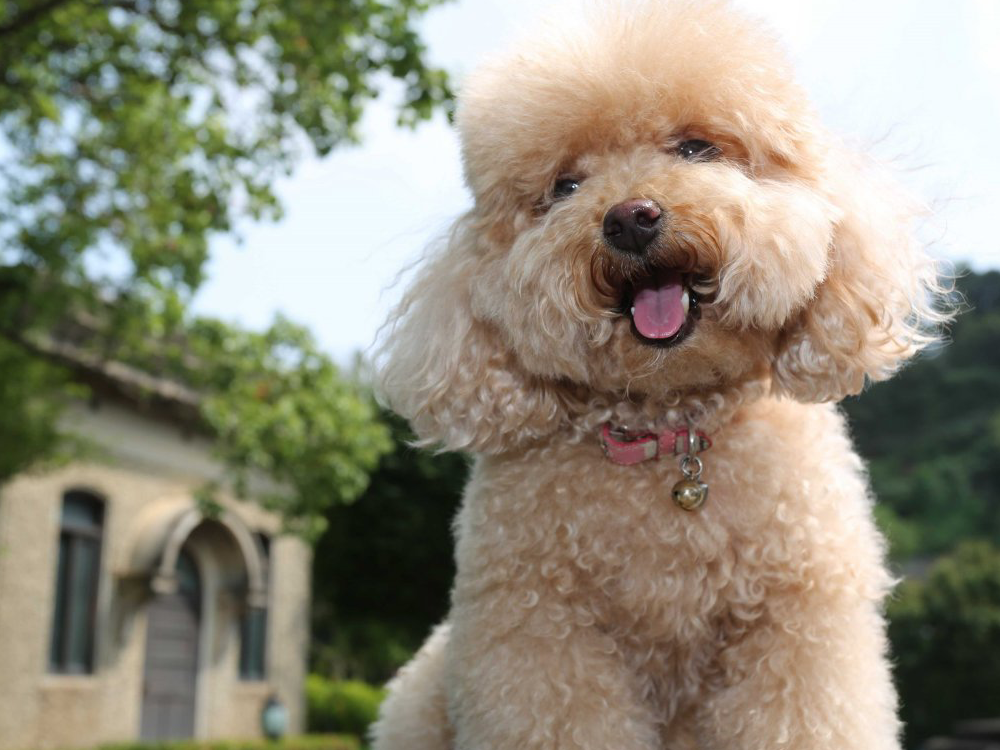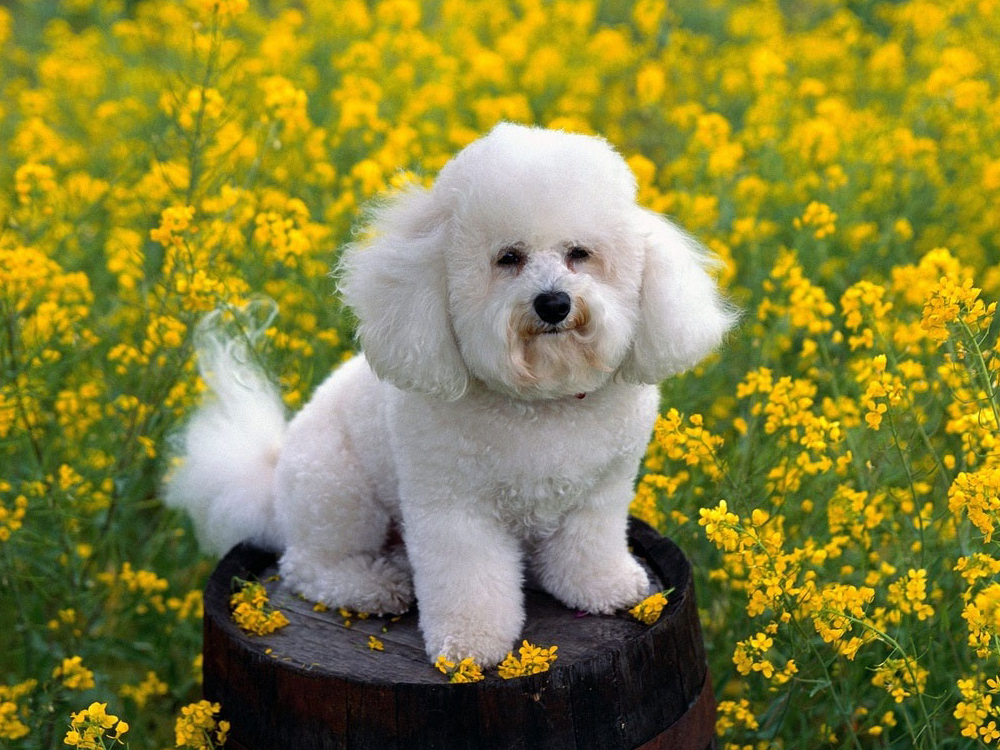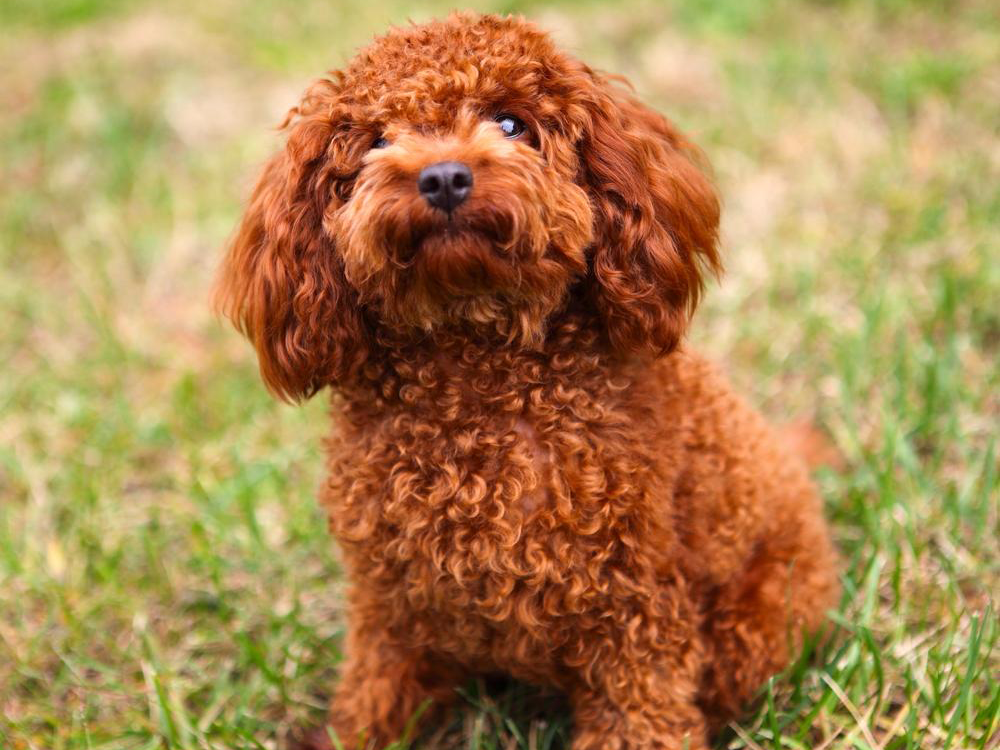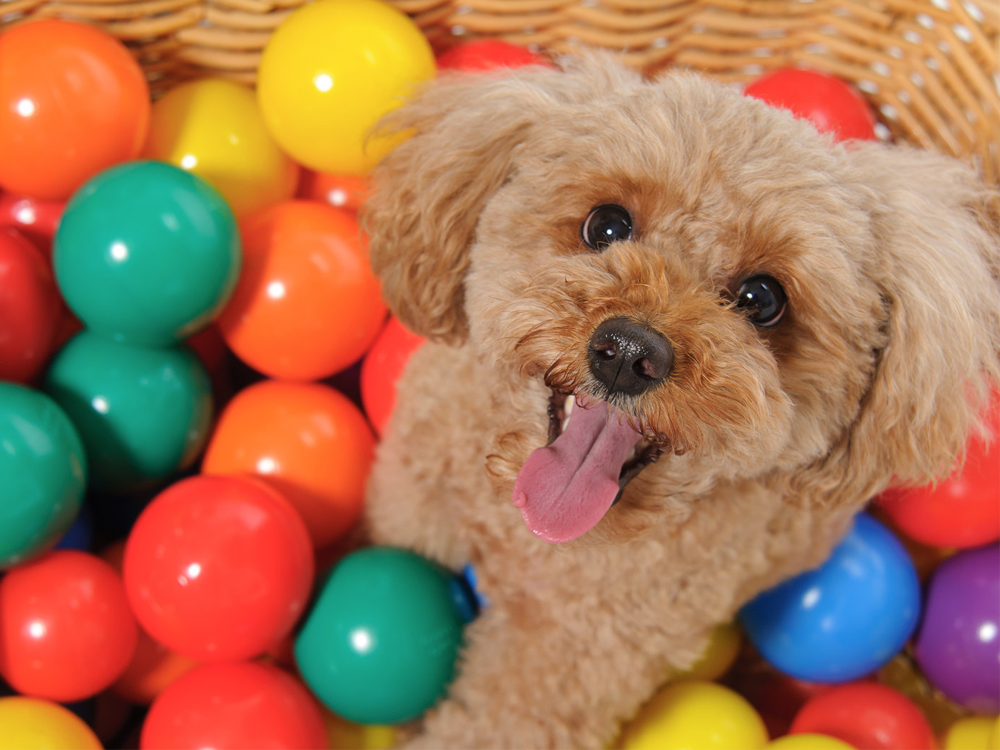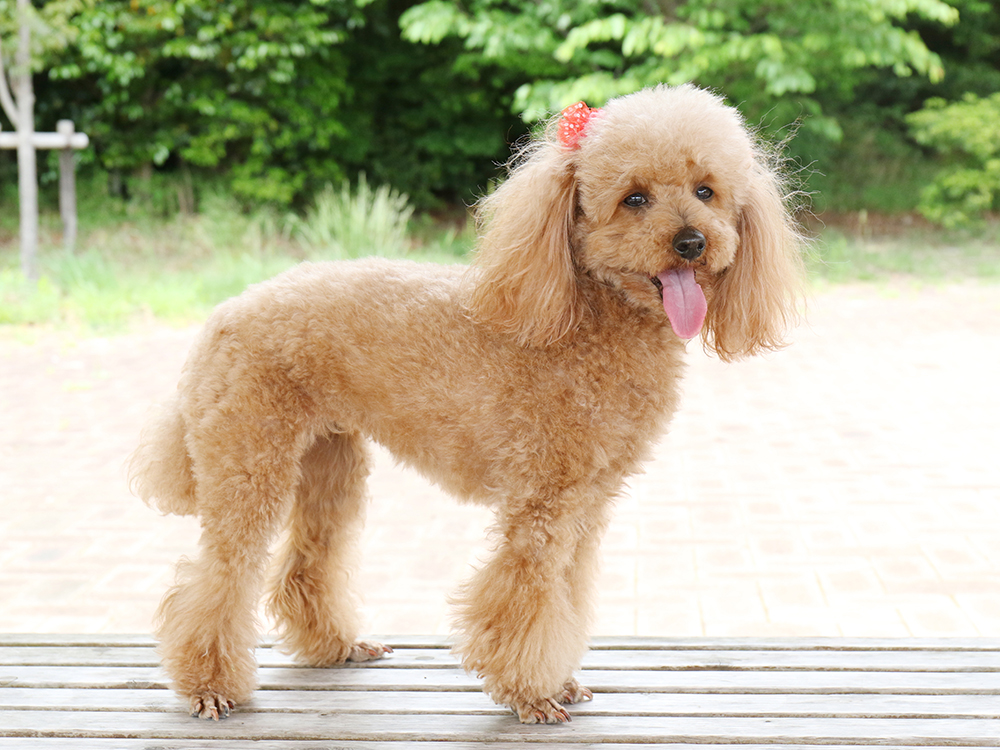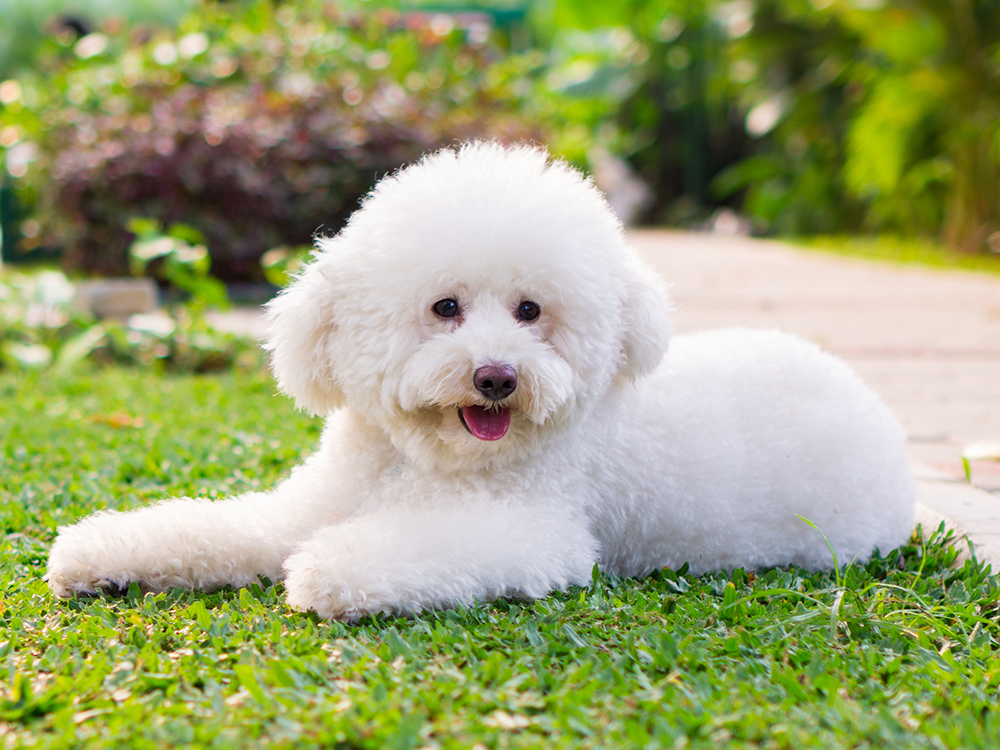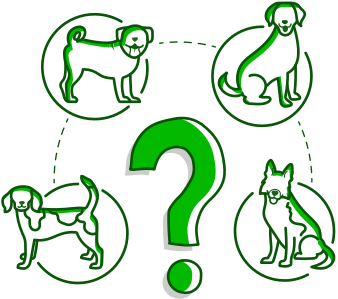Give a thumbs up if you love the Toy Poodle

0
More About the Breed

History
The Toy Poodle is the miniature version of the standard poodle. The poodle is the only breed that comes in different sizes registered under separate groups (Toy and Non-Sporting). The history of the poodle is debatable, but it was known to be originally from Germany. The name itself, 'poodle,' is derived from the German word pudel, which means to splash, emphasising its water abilities. It was only in eighteenth-century England when the toy poodle was developed primarily as a truffle hunter. Later in the mid- to late-nineteenth century, the toy poodle became a show dog to complement the sensibilities of Victorian and Georgian women. The toy poodle is recognised by the Kennel Club in the UK.

Appearance
The Toy Poodle is a small dog with an athletic build. It appears elegant and stands proud at ten inches tall or under, and weighs around 6–9 pounds. A Toy Poodle that stands above ten inches is disqualified from competing in shows under the Toy Category. Appearance-wise, it has a triangular head and its muzzle is long. It also has wide-set ears that drop and hang close to the head. The Toy Poodle has a thick, single-layered coat (no undercoat) that is curly and wiry, which can be worn in different styles of clips (hairstyles). Conventional clips serve to insulate this dog breed’s chest and joint.

Grooming
Since the Toy Poodle is a popular participant in dog shows, dog owners need to maintain its regal look. It needs to be bathed every one to two weeks and taken to professional groomers for a proper clipping every six to eight weeks. This toy dog is tricky to groom. Instead of furs like most breeds have, the Toy Poodle has hair that grows longer, which may become tangled when it falls off. However, the upside is this makes it an ideal hypoallergenic dog. It comes in a wide set of colours, including white, black, blue, cream, apricot, silver, or grey.
Much of the attention is spent to make sure the Toy Poodle’s hair is kept clean and in excellent condition. But it is also essential for dog owners to make sure the ears are checked regularly for wax build-up and infection. Nails must also be trimmed monthly.

Temperament
The Toy Poodle is an ideal companion for children. However, playtime with young kids must be supervised to avoid accidentally hurting this small, delicate dog breed. Loyal, intelligent, loving, and goofy are words often used to describe the toy poodle. It has an eager-to-please attitude and is very fond of people in its family. Although it is a loving dog, warming up to other people may take time.

Intelligence
When taught proper canine manners whilst still young, this dog breed carries itself in a calm manner. But to maintain this calm disposition, it has to get regular exercise to burn off its energy. The Toy Poodle is highly trainable and quick to learn because it is smart. It requires both physical and mental stimulation. Like any other dog, it loves to play fetch or run around. Since a toy poodle is a small dog, it fares well in a small apartment.

Nutrition
So what do you feed your Toy Poodle? A mix of protein (e.g., organ meat and lean meat), healthy grains, fruits, and vegetables are great for your dog. Treats are 20 per cent of what dogs consume. Make sure you choose them well and must be reserved as rewards for house-training. Measure and limit its intake to what is recommended, so it doesn’t become overweight.

Feeding
A typical serving for a Toy Poodle is a quarter to a half cup of high-quality dry dog food daily. This is only an estimate on average, but each dog has different servings. For example, a highly active dog will require more servings to replace the energy burned compared to a couch-potato dog. It is also essential to understand the basic nutritional requirement of your dog. Most dog breeds, including the Toy Poodle, are sensitive to food additives found in commercial brands. These additives have chemicals that can cause allergies and digestive issues, so it is crucial that you carefully read the label of manufactured brands.

Health
The Toy Poodle has a lifespan of twelve to fourteen years. For this small dog to live out its lifespan, keep a laser-focus attention to its health and exercises. In terms of health, dog owners must be aware of its health issues. The Toy Poodle is a generally healthy dog like most breeds, but it is predisposed to several health problems such as Addison’s disease, Gastric Dilatation Volvulus, Thyroid issues (both hyperthyroid and hypothyroid), Luxating Patella, Hip Dysplasia, and Legg-Calve-Perthes disease, amongst many others.

Exercise
The Toy Poodle needs regular exercise to maintain a healthy body and mind. However, do not confuse regular daily exercises with a rigorous exercise routine. For a Toy Poodle, short twenty-minute walks in a small enclosed yard with enough space is adequate. It is crucial that physical exercises are low-impact, can easily be done, and can be adjusted as needed.

Cost of Ownership
One super important element in deciding a specific dog breed is your financial capacity to raise it. For a Toy Poodle, how much you will spend depends on its purpose. If you plan for this small dog to participate in shows, be prepared to spend more on grooming. On the other hand, if a Toy Poodle is for companionship, the average cost over its lifetime is around £27,100 to £30,800. This amount is based on several things typical dog owners spend on dogs, such as vaccinations, visits to the vet clinic, dog accessories, food, toys, pet insurance, grooming services, flea treatments, and more. Price range for Toy Poodle puppy starts at £700 to £1,000 or more.
Toy Poodle Breed Highlights
- The Toy Poodle is intelligent, eager to please, and obedient.
- A real family dog, it is affectionate and great with kids.
- Suitable for apartment living because of its small size.
- It does not require a lot of outdoor exercises.
- It is a popular breed for dog shows and competition.
- The Toy Poodle requires regular grooming to maintain its elegant look.
Considering getting a Toy Poodle?
Share this breed with your friends:
Share this breed with your friends:



